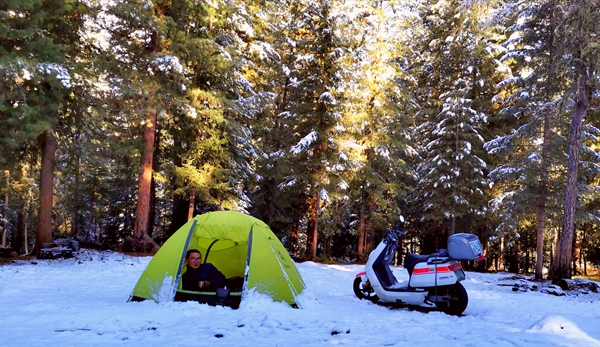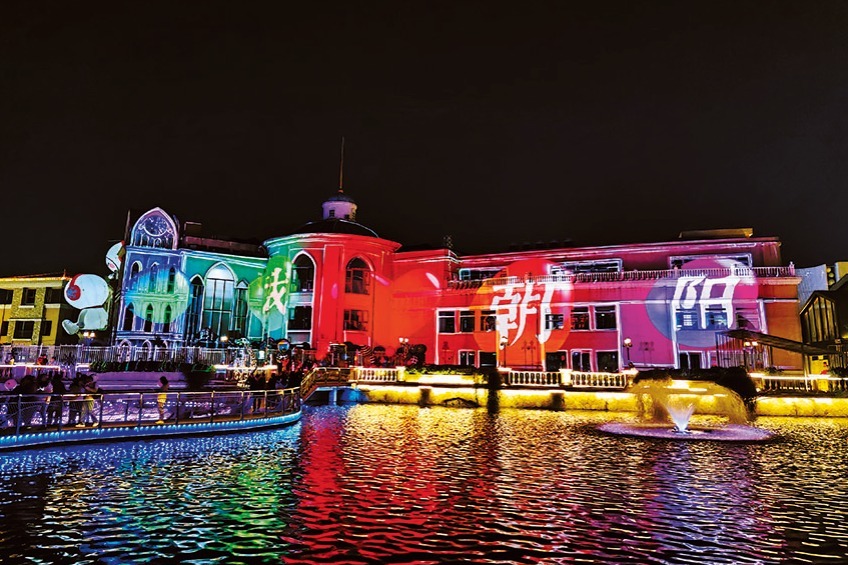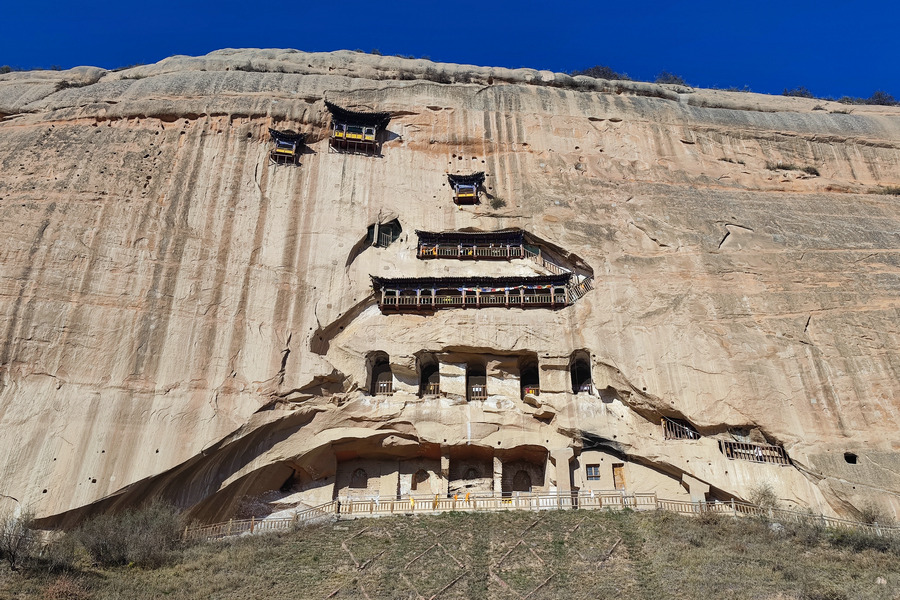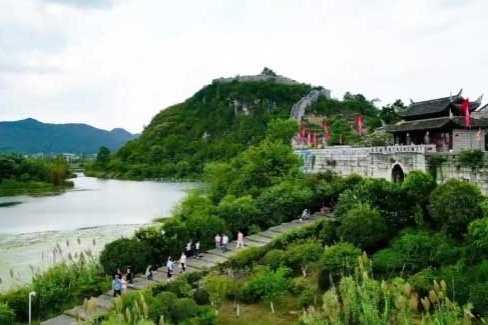Journey of a lifetime


He went camping at well-chosen sites to get close to nature. One such place was the picturesque Kanas Lake in the Xinjiang Uygur autonomous region.
In January, Zhou arrived at Genhe city, Inner Mongolia. He set up his tent there to experience the extreme cold.
He kept himself warm and wind-proofed with professional outdoor apparel in daytime, and used three sleeping bags and other items at night when the temperature could drop as low as-41 C.
"Your eyelashes would freeze. In daytime the temperature is only around-20 C," he says.
The scenery from the Tibet autonomous region to Xinjiang deeply impressed him.
"I would go for days without seeing anyone else on the road. At an altitude of about 4,500 meters, I slept on the vehicle. When I woke up an hour later, I was still alone. It was the most lonely moment of my life," he says.
So, when he did meet people, he would enjoy making friends and would actively chat with others on the road. He occasionally traveled with some companions.
"I had the same travel route as Zhou, but I was driving an SUV," says Gu Liang, from Xuzhou, Jiangsu province, who traveled with Zhou for a week in Xinjiang. "It requires willpower to travel so far on an electric motorcycle."
When Gu's car was stuck in snow, Zhou tried to help him to pull it out and stayed with him until a rescue team came.
"We just met each other. He could have gone, but he waited until the nine-hour rescue ended. He's a wonderful friend," Gu says.
Zhou was moved that many strangers extended a helping hand, especially the hospitable people of local ethnic groups.
In remote regions, Zhou stayed with them, offering him an opportunity to learn about local customs and dining habits.
"At a Tibetan's home in Sichuan province, I was expecting local dishes, such as yak meat, but I was served with rice, fried dishes and steamed buns. I then realized that they especially made these typical Han dishes for me as a guest," he says.
In Xinjiang, he arrived at a place guarded by a group of armed police, who allowed him to stay overnight, as there were no hotels nearby.
From Tibet to Xinjiang, he passed by an area that extended about 1,500 km, where locals rely on solar power and generators for electricity. Once he stayed overnight at the home of a Kazak family in a remote village in Xinjiang where there was a power cut, and the hostess cooked noodles for him by the light of a candle.
Thanks to a national project, he says, the area will have steady power supply by the end of 2020.

































